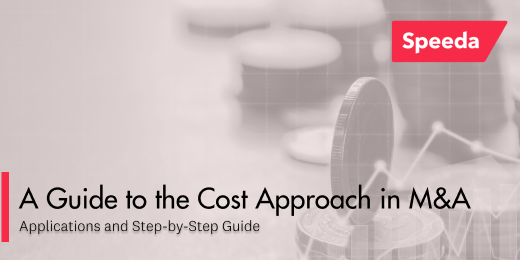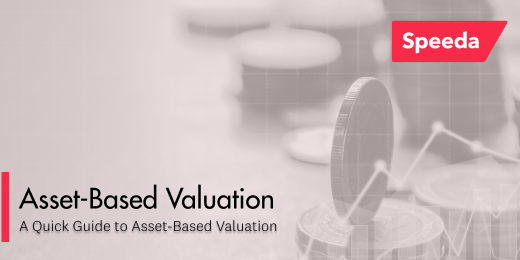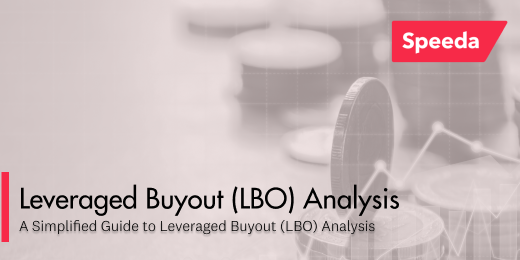Trung tâm tài nguyên
How to Efficiently Work on Benchmarking for Financial Firms

Summary
Discover solutions to streamline benchmarking efforts, optimize benchmarking, and enhance M&A decision-making through effective target screening and accurate data collection.
In the era of advanced tools designed to optimise business processes, staying competitive requires a comprehensive strategy. This challenge spans mass-market and niche segments, impacting both established enterprises and emerging companies striving to expand their market presence. While effective benchmarking is crucial for various businesses, it holds a unique significance for professional firms.
For professional firms, benchmarking is a vital tool for gathering essential information for research purposes. Specifically, in contexts like transfer pricing analysis, benchmarking serves as a means to shortlist companies and identify target organisations for in-depth analyses.
For instance, effortlessly identifying similar companies based on criteria like revenue size or profit growth allows for swift shortlisting during the initial research stage of transfer pricing analysis. This approach ensures a comprehensive examination that supports the nuanced needs of professional firms, helping them adapt to the ever-changing dynamics of the market and stay ahead in their research work.
Challenges of Data Collection for Benchmarking
One currently ubiquitous method of data collection is relying on traditional sources of company data, including industry reports and association directories. Despite such data sources often requiring a fee to access, the information contained within can often be of little use due to being outdated or inconsistent, despite claims of recency and reliability.
More intensive documents such as trade publications, industry reports and annual company records are time-consuming to evaluate and are often outdated by the time they are published. For example, Singapore’s ACRA allows for company annual returns to be filed up to 7 months after their financial year-end. This can snowball into misled decisions.
The usage of unreliable or inaccurate data can influence businesses to make the wrong moves in the market and waste time and resources in their benchmarking and adjustment efforts. It can also be difficult to pinpoint wrong decisions and their causes in the long run, as more and more benchmarking processes take place and the resulting adjustments are enforced.
Advantages of Using Speeda for Benchmarking
With the abovementioned key considerations in mind, Speeda is one platform that effectively pushes past the current limitations of data collection for benchmarking purposes. Our iterative process has bred many useful and change-resistant assets, such as a large and diverse database of company information and market evaluations in many fields.
Speeda also offers both unique and standardised industry segmentation, advanced search and filter options, as well as an intuitive user interface and export tools to enhance the user experience. This innovative approach allows users to not only access industry-specific data but also to seamlessly locate peers within the same industry, fostering a more comprehensive understanding of industry segments and facilitating more informed benchmarking.
Combined, these features serve to allow end users a much more efficient and accurate benchmarking process. As compared to compiling data from scattered sources the conventional way, Speeda enables end users to find relevant companies for benchmarking by including filters for financial indicators, geographic locations, or business activities.
Enhance Business Benchmarking with Advanced Tools for the ASEAN Market
Business benchmarking is a common practice, with many companies venturing into utilising global and regional platforms. These platforms often take the form of data platforms and business valuation software tailored to specific business landscapes, covering regions like Malaysia and Singapore.
However, Speeda distinguishes itself with an extensive focus on the ASEAN market. In contrast to other global or regional platforms that may provide data for this region, Speeda excels by offering the most comprehensive coverage for South East Asia.
Its strength becomes apparent through its concentrated attention on the business landscapes of key countries such as Malaysia, Singapore, Thailand, and Vietnam. This concentration enables users to access extensive information on both public and private companies, including key financials and industry-specific data, making Speeda the go-to tool for all benchmarking needs.
In the domain of business operations, where a substantial commitment of both financial resources and time is paramount, there is unanimous acknowledgement regarding the pivotal role of efficient and accurate data collection in benchmarking. Reliable platforms that provide data and insights, supporting clients in their research or analysis toward informed decision-making, gaining a competitive advantage, optimising resources, improving performance, and enhancing strategic planning are actively sought after and highly valued.
Speeda serves to enhance benchmarking efforts with a powerful combination of filtering options and sorting capabilities, all behind an easy-to-use user interface. Professional firms looking to optimise and enhance their data collection for benchmarking can rest assured that any data-driven decisions made will yield results and keep them ahead of the curve in this fast-changing business environment.



























